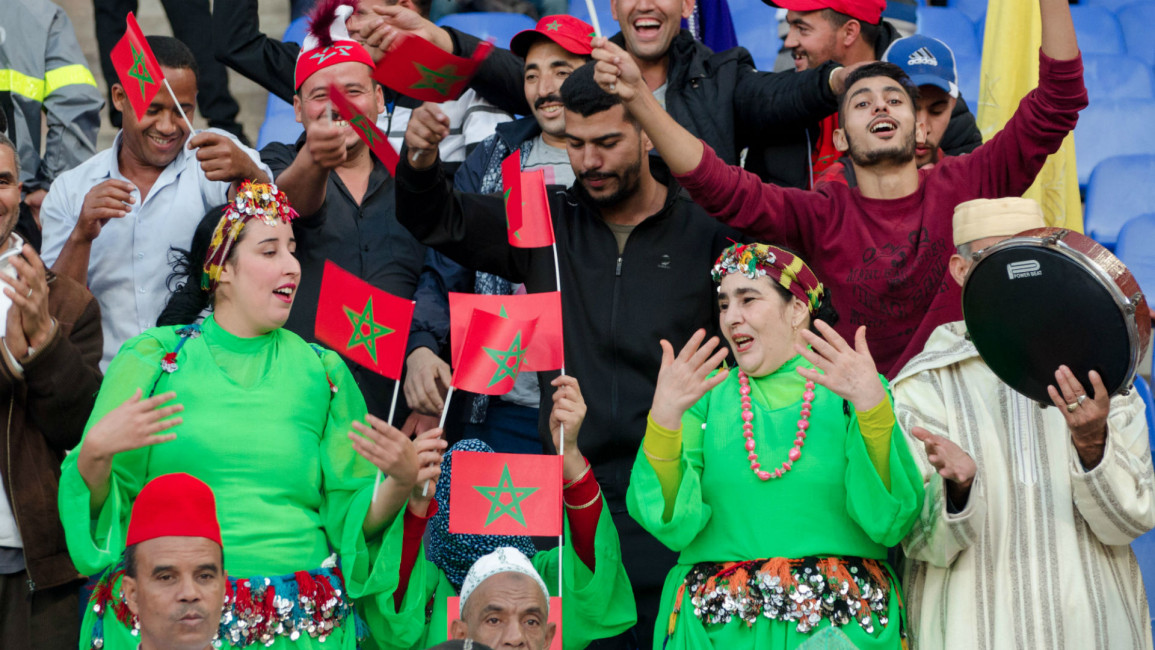
World Cup bidding wars: This week in Middle East football
It has become an irreversible fact that the 2022 World Cup will be held in Qatar as planned. Final preparations for the 2018 World Cup in Russia are underway, and after some surprise twists bids for the 2026 tournament are also being launched.
At the start of this month, the 2026 World Cup seemed like a done deal. The US, Canada and Mexico made a joint bid to host the first World Cup involving 48 teams - rather than the conventional 32 - and their detailed application put them as favourites. But on deadline day, Morocco handed in the documents detailing their bid to host the tournament - the North African kingdom's fifth attempt.
Only countries from the American, African and Oceanian continents are able to host the 2026 World Cup. When the deadline passed, the US-Canada-Mexico bloc and Morocco were the only two bids submitted.
Morocco's aspirations to host the 2026 edition - immediately after Qatar 2022 - caught the North and Central American favourites a little by surprise. Though the stakes aren't as high for the North African kingdom, having two Middle Eastern tournaments - one after another - is unlikely to happen. The last African World Cup was in 2010, while North America only hosted the tournament in 1994, which again boosts the US-Mexico-Canada chances.
But the Moroccans have not given up just yet and believe that a World Cup in their country would suit European fans perfectly. Morocco is in the same or similar time zones as much of Europe. It would certainly be closer for European football fans and teams to travel to North Africa than North America, which is important given that 16 nations from Europe will be represented in the expanded version of the tournament.
Behind the scenes, sources have reported that Morocco is waiting it out for the slim possibility of the 2022 World Cup being cancelled due to an economic blockade on Qatar by a Saudi-led bloc. The North African country is hoping it could put itself as a suitable alternative Arab host if the Doha tournament were to be scrapped.
The Confederation of African Football head Ahmad Ahmad has already declared his support for the Moroccan 2026 World Cup and 2019 Africa Cup of Nations bids.
The "out of the blue" Moroccan bid will be even more of a major shock if they win the rights to the tournament.
 |
The Moroccans have not given up just yet and believe that a World Cup in their country would suit European fans perfectly. |  |
Nevertheless, at least two or more new stadiums will need to be built if Morocco were to host the tournament, which means an investment of more than a billion dollars.
It's Good to be Back
Good news for Libyan football fans - after a two years hiatus, the local football league is back.
The Libyan Premier League kicked off this week with four matches being played but with no spectators in the stands.
The Libyan football federation has divided the league into four regional groups with the top team from each zone qualifying for the "final four" round.
The previous two football seasons in Libya had to be suspended due to the security and economic situation in the country gripped by fighting.
Before the 2011 revolution and ongoing civil war, Libya was the richest country in Africa based on GDP per capita. The country has seen the near complete collapse of its infrastructure and economy after five years of war.
 |
|
| Catch up with all our football coverage |
A smooth 2017/18 football season is just one of Libya's many national challenges. It will be interesting to follow whether the Libyan federation will succeed in sustaining a full season.
Ittihad Tripoli and al-Ahli Tripoli will look to continue their dominance, while al-Ahly and al-Hilal Benghazi will try and put up a decent rivalry with the capital's clubs.
Asia's money time
After a two months summer break, the Asian Champions League is finally back. In the zone-based knockout stage, the cream of Middle Eastern club football - including Saudi Arabia's al-Hilal Riyadh and al-Ahli Jeddah, al-Ain from the UAE and Persepolis of Tehran - will battle it out for the finals where they will face East Asia’s best clubs.
Nawaf al-Abid - al-Hilal's captain - is reportedly out for the first match against al-Ain. Abid - a key player in the Hilal and Saudi national teams - was identified as having heart problems according to several reports in Saudi media. If this is true it could cast doubts on his career. Abed's retirement would come as a massive shock to Saudi and Asian football.
Manager Ramon Diaz made a surprise decision of leaving out Omani goalkeeper Ali al-Habsi from the roster, who was brought over from the English Championship.
The clash between the Saudi champions and al-Ain will be Omar Amoory Abdulrahman's final chance to bring continental glory for the Emirati club, which won't be competing in the Asian Champions League next season. Facing such a strong club as al-Hilal, it will be interesting to see what Amoory is capable of with his new teammate, the powerful Swedish striker Marcus Berg.
Another interesting meet up in the forthcoming stage is the Saudi-Iranian clash between al-Ahli and Persepolis. With everything that's going on in the region a football match between clubs from these countries is always an explosive material. A neutral venue has been selected for the clash - the Sultan Qaboos Sports Complex, in Muscat, Oman. May the best team win.
Uri Levy runs the popular football blog BabaGol, which covers football and politics focusing on the Middle East. Follow him on Twitter, and read his blog here.





 Follow the Middle East's top stories in English at The New Arab on Google News
Follow the Middle East's top stories in English at The New Arab on Google News


